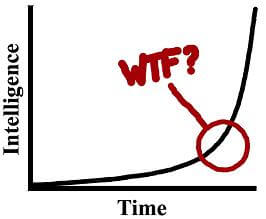
Ray Kurzweil’s made a name for himself by forecasting the future. He foresaw the fall of the Soviet Union, the rise of the Internet, and the success of the Human Genome Project. Cautious people might have stopped there, but Kurzweil’s has written extensively about the technology that will arise in the next few years, and for many years thereafter. Not so long ago we covered the online debate between Ray Kurzweil and Michael Annissimov about whether or not Kurzweil’s predictions for the early 21st century have come true. Kurzweil claims he’s 102 for 108. Annissimov wanted greater accountability and critical review of his predictions. How are we to decide who’s right? Well, we might look to that ultimate compendium of human knowledge: Wikipedia. Actually, “Predictions made by Raymond Kurzweil” on Wikipedia has one of the most well developed lists of its kind on the web. The wiki covers all three of Kurzweil’s major books on the subject as well a few interviews. It also breaks predictions down into appropriate years or decades as needed. It’s a great resource, even if it’s less than 100% complete. But I think look at predictions individually is really missing the importance of Kurzweil’s central thesis of the future: change is accelerating. If the growth of intelligence is truly following an exponential curve, it won’t matter much whether or not Kurzweil is off by a few years in his predictions.
We here at the Hub are totally willing to wade into the minutia of technological predictions. It’s fun (most of the time). But let me make a plea for the bigger picture. The reason these predictions are so important is because they highlight the deeper trend – the development of technology has been accelerating for years and will continue to do so. If you boiled down all of Kurzweil’s predictions into one idea, that would probably be it. It’s good to know whether or not Ray’s been 90% accurate, or 9% accurate. After all you could make a fortune, or help save the world, if you figured out how to capitalize on accurate predictions. In the end, however, whether Kurzweil’s off by a year, or two, or twenty doesn’t matter so long as that exponential curve to technology still holds true. As long as that underlying prediction is sound, we’re all in for one heckuva wild ride.
So is that underlying prediction true? Will technology continue to accelerate? This is where the Wikipedia article might actually come in handy. Individually, each Kurzweil prediction is open to some interpretation. For instance, have computers started to take on nontraditional shapes, embedded in clothing and jewelry? Depends on whether or not you count the iPod Shuffle, watch phones, and BlueTooth headsets. You can make arguments for either side (as we’ve already seen in the comments section for the other article). Ask the same questions for a dozen predictions and you get a slightly better understanding of how accurate Kurzweil may be. Look at a complete list for Kurzweil’s predictions and you start to see the bigger trend. Hundreds of predictions that are close to being right (or in some cases, dead on) give credence to the idea that the predictor’s underlying thesis is true. By trying to tackle all of Kurzweil’s predictions in one place (trying but not nearly finished), the Wikipedia article comes closer to evaluating that central idea.
If the ‘Predictions’ Wikipedia page can be further developed it could be a very helpful tool to silence or support Kurzweil’s detractors. More importantly it could even give us some reasonable insight as to how we should approach Ray’s more controversial forecasts: humans uploading their minds into computers, effective immortality for consciousnesses, the arrival of a Singularity in technological advancement, etc.
That, I think, is really why we should be evaluating predictions in the first place. Once we know how accurate a futurist is, once we prove or disprove their thesis, we need to take some sort of action. Do we devote more public resources to preventing the dangerous aspects of accelerating technology (nanotech pollution, biological warfare, etc)? Do we start training people to use accelerating technologies for the greater good? Do we try to figure out how close we are to the Singularity and prepare ourselves for the culture shock?
Let’s use the Wikipedia page as a tool for evaluating Kurzweil’s predictions, his underlying thesis, and where we might go from here. Tell us what you think in the comments below. Or better still, slip on your research hat and start revising and updating the wiki. If the debate is going to rage on we might as well channel that energy into something useful. It’s what the robots would do.
[image credit: Singularity Hub ]
[source: Wikipedia <–Gasp!]


